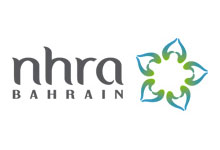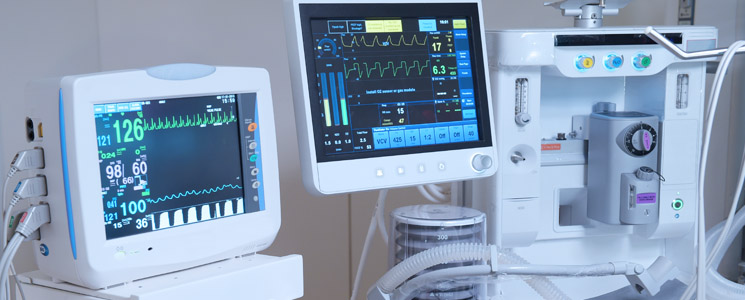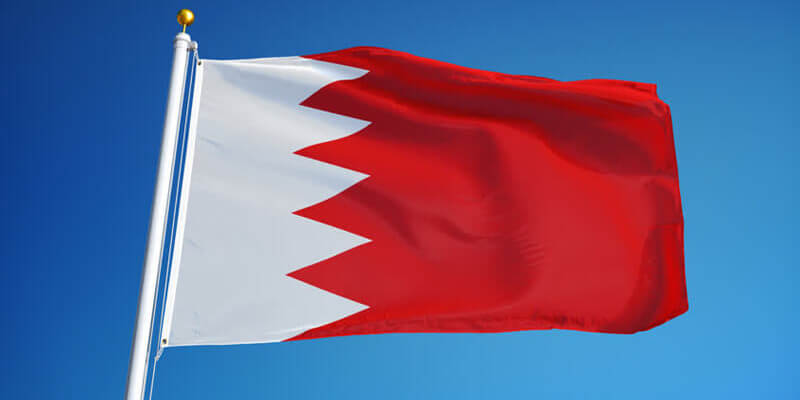To assist medical device manufacturers in maintaining compliance with applicable requirements, the National Health Regulatory Authority (NHRA), the Kingdom of Bahrain’s agency responsible for medical device regulation, has published registration guidelines.

Bahrain Medical Device Definitions And General Principles
The guidance issued by the NHRA covers the most important aspects of medical devices and the registration process necessary to place a device on the national market. First, the document provides the most important definitions used, such as “medical device”, “combined medical device”, and “in-vitro diagnostics”. The definition of a medical device has been harmonized with the definition used in EU regulations. A combined medical device definition includes all devices containing specific additional components, such as pharmaceutical products or biological materials. An IVD covers all devices intended for the examination of a specimen derived from the human body to obtain information on the state of the human organism, to monitor the effectiveness of therapeutic measures, identify abnormalities or check compatibility.
Bahrain’s registration procedure was first introduced in 2015 while the current regulatory framework was adopted in 2018. The registration process is intended to assess compliance with safety and performance requirements set forth by applicable regulations and standards. The NHRA additionally emphasizes that the guidance has been developed on the basis of similar documents issued by reputable regulating authorities, such as US FDA, British MHRA or Australian TGA, in an attempt to implement global standards and approaches to medical device regulations to improve regulations on the national level.
The authority defines a set of obligatory rules an applicant shall follow, namely:
- It is required to appoint an authorized representative and register it with the authority. The authorized representatives are the only party entitled to submit an application for registration.
- Any and all medical devices should be assigned with a proper class in accordance with the risk-based classification before submitting an application.
- After the registration, the information about the registered device, and also about the appropriate authorized representative, would be accessible via the official authority’s website.
- Healthcare institutions are allowed to purchase only the devices properly registered to be placed on the national market.
- Importation and NHRA registration are separate procedures and should be carried out independently.
- As of July 2019, there are no registration fees – they would be published additionally.
- The license holder must submit a renewal request in advance (nine months before the license expiration date).
- Any and all medical devices to be placed on the national market should have a quality assurance certificate issued by a notified body.
These requirements provide medical device manufacturers with a general understanding of the current regulatory framework.

Medical Device Registration Process in Bahrain
An applicant with intent to register a medical device in Bahrain must start the registration process with the submission of an application accompanied by the documents requested by the authority in electronic form.
There are two procedures available depending on the current status of the device:
- Special procedure for medical devices approved by the Saudi Food and Drug Administration (SFDA) – devices that received SFDA Medical Device Marketing Authorization (MDMA), providing that the applicant shall submit the SFDA Medical Device Form.
- General registration form for non-SFDA registered devices.
The registration certificate issued by the authority would be valid in Bahrain for 3 or 5 years. The guideline also contains the requirements and list of documents required for both registration procedures. If the medical device subject to registration has been previously approved by the SFDA and received the MDMA, the applicant shall submit the following documents:
- SFDA Medical Device Form,
- MDMA Certificate,
- Declaration on recall status or the letter indicating the history of recalls,
- Description of the device containing the name, model of the device and brand,
- An agreement concluded by and between the authorized representative and the manufacturer of the device, or an authorization letter provided by the manufacturer to the authorized representative,
- Instruction for use,
- Verified Quality Assurance Certificate & Quality Management System,
- List of the national markets on which the device is already present (should be provided by the manufacturer),
- Sample of labeling that should be in Arabic or English,
- Request for the registration in the form of an acknowledgment.
In other cases, an applicant must provide an extended list of documents, namely:
- Appropriate general Medical Device Registration From,
- An agreement concluded by and between the authorized representative and the manufacturer of the device, or an authorization letter provided by the manufacturer to the authorized representative,
- Verified Quality Assurance Certificate & Quality Management System,
- Documents containing technical information, such as service/user manual,
- Instruction for use,
- List of the national markets on which the device is already present (should be provided by the manufacturer),
- Description of the device containing the name, model of the device and brand,
- Free Sale Certificate issued by the appropriate regulating authority of the country of origin,
- Sample of labeling that should be in Arabic or English,
- Declaration on recall status or the letter indicating the history of recalls in Bahrain for five preceding years,
- Declaration of Conformity (Doc) indicating the class of the device in accordance with the risk-based classification (should be also provided by the manufacturer),
- Request for the registration in the form of an acknowledgment.
Modification And Change Notification
According to the existing regulation, an applicant has the right to request for amending the license during its validity period. Depending on the particular changes made to the device, it could be either minor variation (changes with no impact on safety or performance of the device) or major variation (substantial changes to the device itself or to the information about the manufacturer, e.g. change of address of production facilities).
In the case of minor variation the notification procedure should be applied, providing that it would be sufficient for an applicant to file a notice to the regulating authority informing it about changes made to the device in order to maintain compliance with applicable change notification regulation. At the same time, major changes would result in the cancellation of the license obtained previously, so the applicant would have to submit an entirely new registration form.
The document also provides details on bundling rules under which separate submissions for different devices could be connected (grouped or bundled). The original process is based on a similar procedure introduced by the SFDA. According to these rules, single medical devices produced by one manufacturer and having the same risk class, intended use, and the generic name could be bundled into one submission. Depending on the particular features of the devices, they could be grouped (bundled) into Families, Systems, and Procedure Packs. Applications for an IVD registration could be bundled too if they meet the appropriate requirements (manufacturer, risk class, original approval/certificate and intended use is the same for all devices in the group. Their total number should not exceed 50).

How Can RegDesk Help?
RegDesk is a next-generation web-based software for medical device and IVD companies. Our cutting-edge platform uses machine learning to provide regulatory intelligence, application preparation, submission and approvals management globally. Our clients also have access to our network of over 4000 compliance experts worldwide to obtain verification on critical questions. Applications that normally take 6 months to prepare can now be prepared within 6 days using RegDesk Dash(TM). Global expansion has never been this simple.
Sources:

